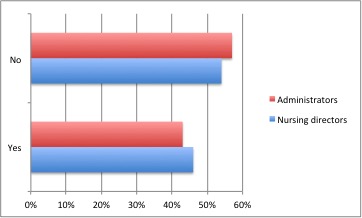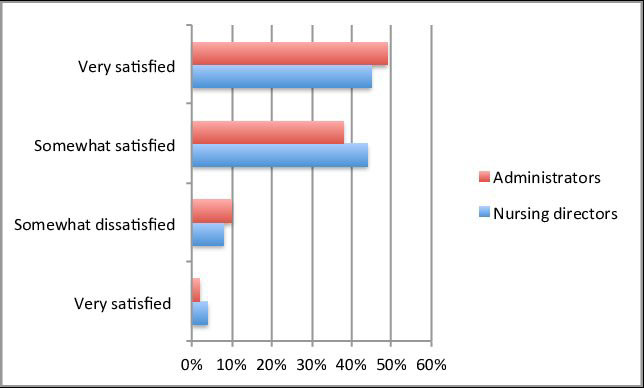
More long-term care managers said they seriously considered quitting their job over the last three months compared to a year earlier but overall levels of job satisfaction remain remarkably high, according to respondents in the McKnight’s Long-Term Care News 2020 Mood of the Market Survey.
When asked, “In the last three months, have you seriously considered quitting your job?” more than 44% said “yes” this year. That’s a 7 percentage point (or 19% net) rise over results of respondents in 2019.
The 2020 Mood of the Market Survey gathered attitudes of 381 long-term care administrators and nurse managers who answered questions sent digitally over a week’s span, ending in early August.

Despite the restlessness reflected above, survey respondents indicated relatively high job satisfaction levels.
Nearly nine in 10 (87%) said they were either “very satisfied” (47%) or “somewhat satisfied” (41%) with their current job. That’s only slightly down from the 91% recorded in 2019 Mood of the Market.
“I’m just astonished, quite honestly,” said compensation and benefits expert Mark Heston of Heston & Associates. “When you look at how satisfied they are after everything they’ve been through the last four to five months, we’re talking about chaotic, uncharted times and they’ve been at the forefront of it. It’s astonishing.”
“It’s a true testament to the type of people in the industry. It speaks to selflessness and commitment. They’re focused on hunkering down and caring for residents.”

Heston noted that past surveys that covered many other industries have revealed that 60% of respondents said they had thought about quitting during the last three months. It’s another relatively positive reflection on nursing home respondents’ mood, he pointed out.
Matt Leach, principal and senior consultant for Total Compensation Solutions, agreed that job environment is critical.
“What’s going on is how much these individuals like where they work, and like the residents,” Leach said. “The fact that [job satisfaction is] only down that much tells us that it’s the culture that makes people do that, and that’s why they’re there.”
This year, nurse managers (89%) again registered slightly higher overall satisfaction levels in the upper categories than administrators (87%).
Heston cautioned, however, that such qualities shouldn’t be taken for granted.
“I know the workload has gone up significantly for all of these folks, which speaks volumes to the people they are,” he said. “But my concern is burnout. How long can they sustain that type of effort?”
Nurses, who are deemed to have better mobility prospects in the job market, were slightly more likely to consider quitting their current job over the last quarter, 46% to 43%. This, too, corresponds with other results from this year’s survey regarding perceived workloads.
Nursing homes have been the most common link to deaths due to COVID-19, with some 40% of nearly 185,000 U.S. fatalities attributed to such settings. That’s according to federal figures, which are almost universally acknowledged as low. Other expansive research efforts have estimated that nearly 70,000 nursing home residents and workers have died due to the coronavirus.
Coming tomorrow: Pay and workload attitudes.




